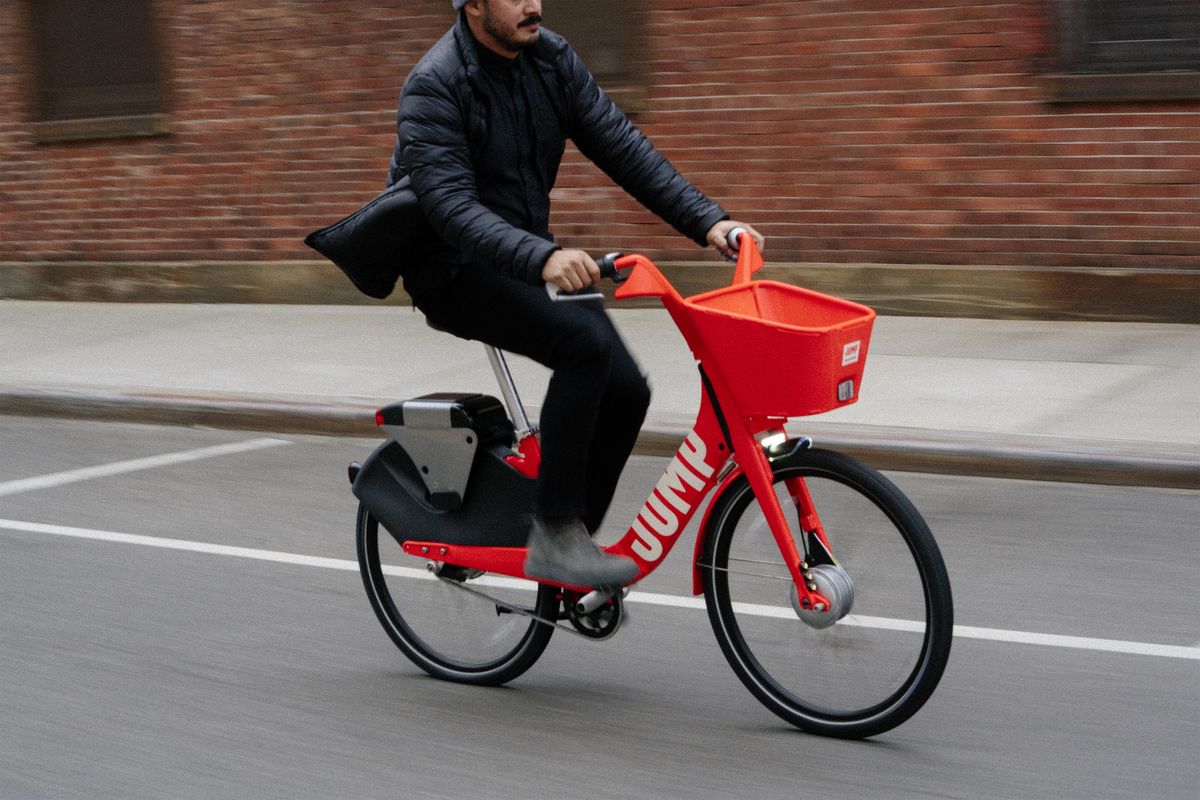In the two months since Uber bought bike-share startup Jump, the company’s bright red bikes have already rolled out across a few US cities — and now they’re coming to Europe.
Onstage at today’s NOAH Conference in Berlin, Uber CEO Dara Khosrowshahi announced that the company would be expanding beyond its traditional taxi rides with plans to roll out electric bike rentals in the German capital by the end of the summer, with more European cities to come.
It’s a move that raises eyebrows for a few reasons. European cities are already flooded with bicycles from electronic bike-sharing services like Obike, Limebike, and Ofo; Berlin alone has over 18,000 shared bikes from eight different companies. They might be a greener alternative to gas-guzzling cars, but they’re also a big source of clutter. When they’re abandoned by their riders, they’re often left on sidewalks, dumped in parks, or they become the target of vandalism.
Then there’s Uber’s less-than-stellar reputation across Europe. Right now, the company is battling the London transport authority after it banned the ride-sharing company from operating in the city. Uber was stripped of its license to operate due to a “lack of corporate responsibility,” including failing to vet its drivers properly and failing to report criminal offenses like sexual assault, according to English authorities.
In years prior, Uber pulled its services from a slew of other European countries — including Bulgaria and Denmark — after the company failed to work under each country’s preexisting taxi regulations. As Reuters points out, because the ride-sharing company brands itself as a communications platform rather than a ride-sharing service, it manages to evade many of the rules and regulations in place for traditional ride-sharing services like taxis.
This has all led to clashes not only with local transportation authorities but also with vocal groups of local taxi drivers.
Uber’s move to bring these bikes to Europe, along with the company’s announcement to launch the Uber Green electric car service later this year, look like moves to win back eco-friendly European markets that currently blacklist the company. The drivers, meanwhile, will definitely be a harder sell.




